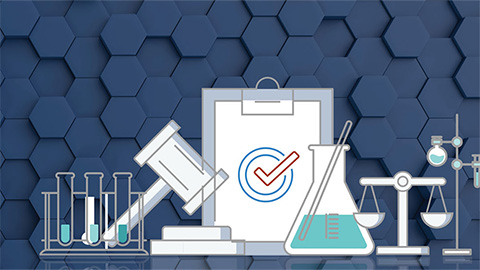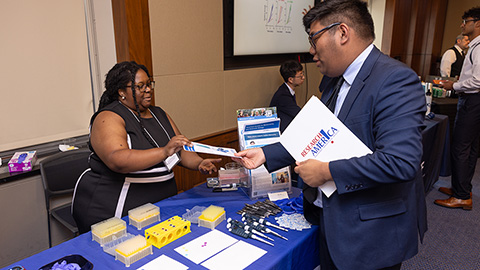Congress passes, considers bills promoting diversity in STEM
While Congress is often characterized by partisan gridlock, late last year it passed legislation that creates and expands STEM education initiatives at the National Science Foundation, and it is considering a bill that would improve the quality of undergraduate STEM education at minority-serving institutions.
The Building Blocks of STEM Act, signed into law by President Donald Trump in December after rare bipartisan cooperation in both chambers, instructs the NSF to equitably allocate funding that supports greater inclusion in early childhood and elementary STEM education. With an eye to improving female participation in science technology, engineering and math, the act also directs the NSF to support research on the factors that discourage or encourage girls to engage in STEM activities.
The MSI STEM Achievement Act, meanwhile, directs the NSF to allocate funds for capacity building at tribal and historically black colleges and universities as well as minority-serving institutions. Based on a late 2018 report by the National Academies of Sciences, Engineering and Medicine, which indicated minority-serving institutions are underutilized resources that can boost the nation’s science and technology workforce, this legislation would direct the Government Accountability Office to create an inventory of competitive funding programs that specifically target minority institutions to diversity the STEM workforce. The bill already has passed the House and is under consideration by the Senate.
The American Society for Biochemistry and Molecular Biology is a member of the STEM Education Coalition, which advocates for “targeted initiatives to promote the inclusion of underrepresented minorities, women, and other high-need populations in STEM fields.” Over the past year, the coalition has advocated for both of the bills.
While these two pieces of legislation are important catalysts for dialogue on what policies are needed to create institutional change to promote a diverse and inclusive STEM workforce, there is still more to this conversation—including sexual harassment in STEM, stereotype threats, and poor advising.
The ASBMB will continue to advocate for passage of the MSI STEM Achievement Act and other bills aimed at creating and supporting a diverse scientific workforce.
Enjoy reading ASBMB Today?
Become a member to receive the print edition four times a year and the digital edition monthly.
Learn moreGet the latest from ASBMB Today
Enter your email address, and we’ll send you a weekly email with recent articles, interviews and more.
Latest in Policy
Policy highlights or most popular articles

Embrace your neurodivergence and flourish in college
This guide offers practical advice on setting yourself up for success — learn how to leverage campus resources, work with professors and embrace your strengths.

ASBMB honors Lawrence Tabak with public service award
He will deliver prerecorded remarks at the 2025 ASBMB Annual Meeting in Chicago.

Summer internships in an unpredictable funding environment
With the National Institutes of Health and other institutions canceling summer programs, many students are left scrambling for alternatives. If your program has been canceled or delayed, consider applying for other opportunities or taking a course.

Black excellence in biotech: Shaping the future of an industry
This Black History Month, we highlight the impact of DEI initiatives, trailblazing scientists and industry leaders working to create a more inclusive and scientific community. Discover how you can be part of the movement.

ASBMB releases statement on sustaining U.S. scientific leadership
The society encourages the executive and legislative branches of the U.S. government to continue their support of the nation’s leadership in science.

ASBMB and advocacy: What we accomplished in 2024
PAAC members met with policymakers to advocate for basic scientific research, connected some fellow members with funding opportunities and trained others to advocate for science.


